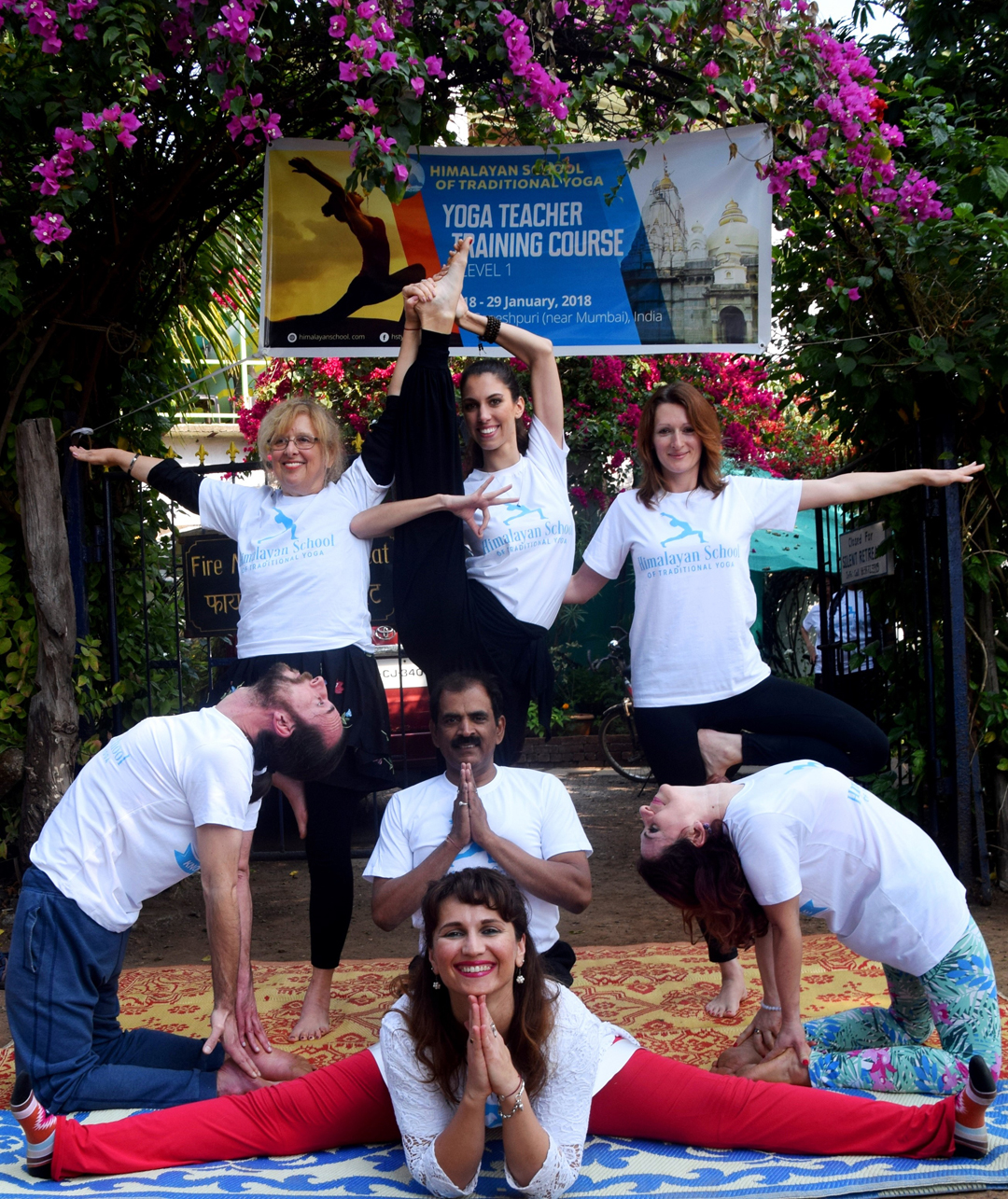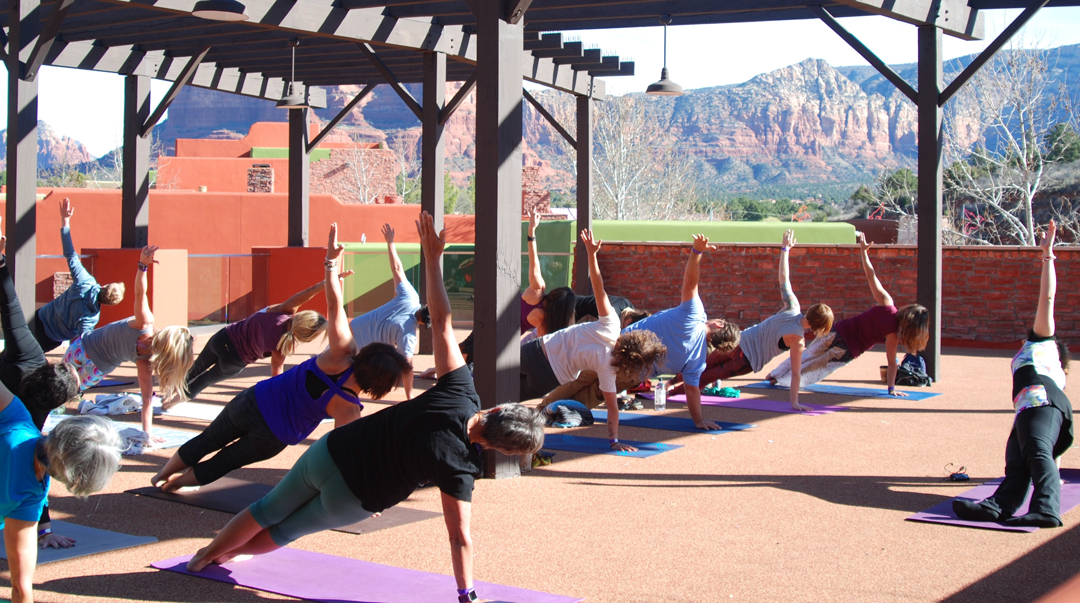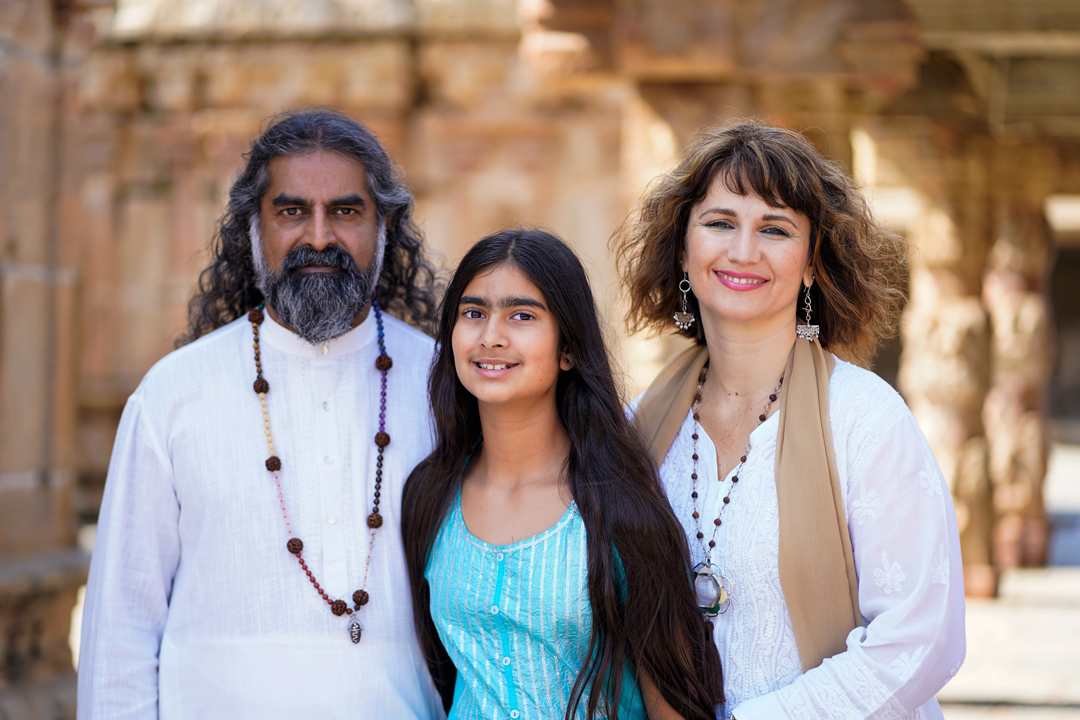
Namita Nayyar:
You are the Global Ambassador for Mohanji Foundation, Global President of ACT Foundation, an internationally active charity, and Director & Senior Faculty (E-RYT 200) of the Himalayan School of Traditional Yoga (HSTY). Please elaborate on the aim of Mohanji Foundation and how far have you been successful in its purpose.
Devi Mohan:
I play many roles within our spiritual platform, as you have mentioned in your question, but I am not defined by any of them. The main slogan of Mohanji Foundation is “adding value to humanity“, wherever we may be (and we travel a lot).
I met Mohanji in Dubai in 2007 and from that moment a whole new life had begun, a life that continues to write novels. In my natal chart, Jupiter is in the house of marriage and that is why it was simply given to me to have my ultimate spiritual guide (Guru) for a husband. With Mohanji I learned what it means to live in the present moment and let the path be formed in front of our feet as we walk.
I have no monthly salary or savings, nor do I have anything that is guaranteed in my life, which is exactly what the mind would like. I let myself go completely and while being in the present I do my best to live the spiritual teachings and the truth that we teach. In short, it is an experiential spirituality with an emphasis on selflessness, spiritual practice (meditation, yoga), charity work, and assuming responsibility for everything that happens to us, while nourishing gratitude through all experiences, pleasant and unpleasant.

Mohanji Foundation is now present in more than 90 countries, while our charity ACT Foundation is present in 26 countries, with active, dedicated teams of selfless volunteers on the ground. The very fact that the growth has been organic and volunteer-driven speaks volumes about the purity of intention behind these platforms and Mohanji’s ability to inspire others through his own example and the immense love that he radiates. Both of us work much more than before when we were in the corporate world, but would never think of going back to it. When a higher purpose takes over, one’s dharma (sacred duty) starts becoming stronger than karma and nothing feels difficult. One simply flows.
The spiritual path to which Mohanji and I belong is like a flowing river. It naturally attracts those souls which are ready to recognize it at the given moment. We deal with numbers, neither on the programs and meditations nor in general. I have never seen Mohanji disappointed because the number of people who attended a programme was less than expected. He has no expectations and that is what he’s teaching us as well. Only when we become aware of that, do we see how much our mind loves nurturing expectations, disappointments, gossip, blaming others for those disappointments, etc. Whoever was supposed to come, they came. That’s how it’s been since the beginning. This is the path of pathlessness, without big rules and routines, uniforms, or titles. This is the path of fire that burns all our limiting beliefs, fears, and ego trips, so it’s not very comfortable and it’s not given to everyone.
But it’s wonderful witnessing what one becomes after one starts walking this path. I have personally seen many transformations in people and new ways in which Mohanji (who for me isn’t just my husband or a person, but pure consciousness) brings people into situations through which they overcome their own barriers and start breathing in completely new energy and potential. Through volunteering, the Mohanji platform provides everyone with the possibility to approach that fire that transforms them and raises them to the higher frequency on which all that’s unnecessary falls off. That is why we often say: “It’s not about what someone gained on these programmes, but about what they lost”, i.e. what they got liberated from because this is the path of spiritual liberation.

Namita Nayyar:
Share input on your daily routine. How do you like to kick-start your day?
Devi Mohan:
When I am in my routine and not traveling, I practice Consciousness Kriya by Mohanji around 5 am (the precious, golden time between 3 am and 6 am should be used for one’s deep spiritual practice), yoga around 6 am (which includes gazing at the rising sun if possible) and then I start my day.
Namita Nayyar:
What type of diet do you follow or one should follow a yoga routine? What foods to include and avoid?
Devi Mohan:
I follow a sattvic (balanced) vegan diet. Since 2001, I first gave up on red meat, then white meat, then seafood, eggs, and finally dairy products. This was my journey, which went hand in hand with yoga practice and increase in subtlety. I generally aim to wake up before sunrise, and first drink warm water with a bit of lemon or lime. I eat only after 9 am and stop eating after sunset. I don’t eat fruits after solid food, don’t drink cold water (only room temperature or warm), and twice a year I do Neera Detox Diet (by Madam Bal from Switzerland) which I really enjoy because it is so liberating to eat nothing for ten days (only a certain syrup is taken with water and lemon) and never feel hungry.
Disclaimer
The Content is not intended to be a substitute for professional medical advice, diagnosis, or treatment. Always seek the advice of your physician or other qualified health provider with any questions you may have regarding a medical condition.